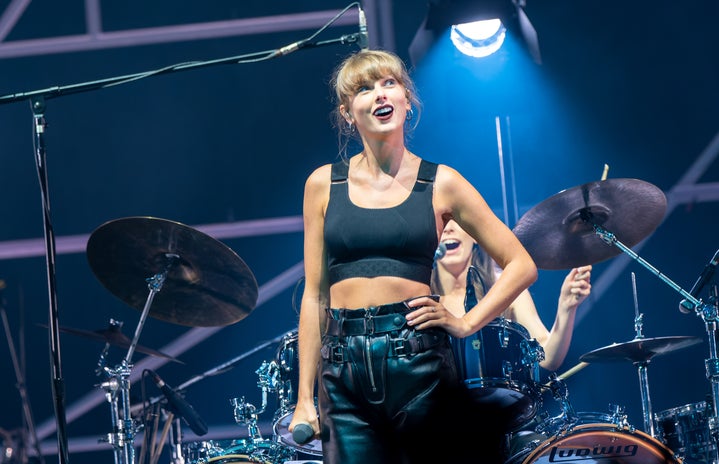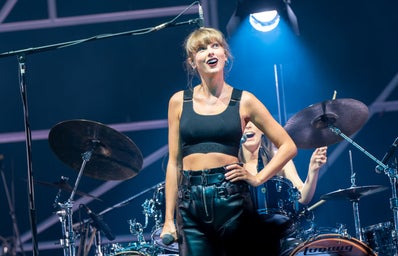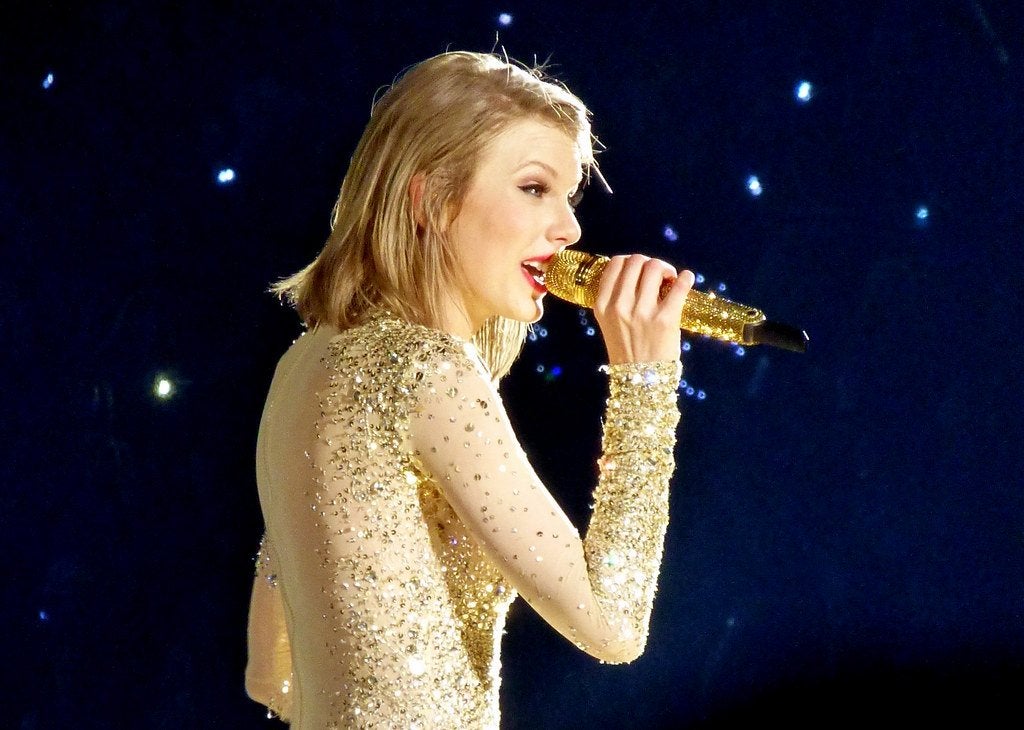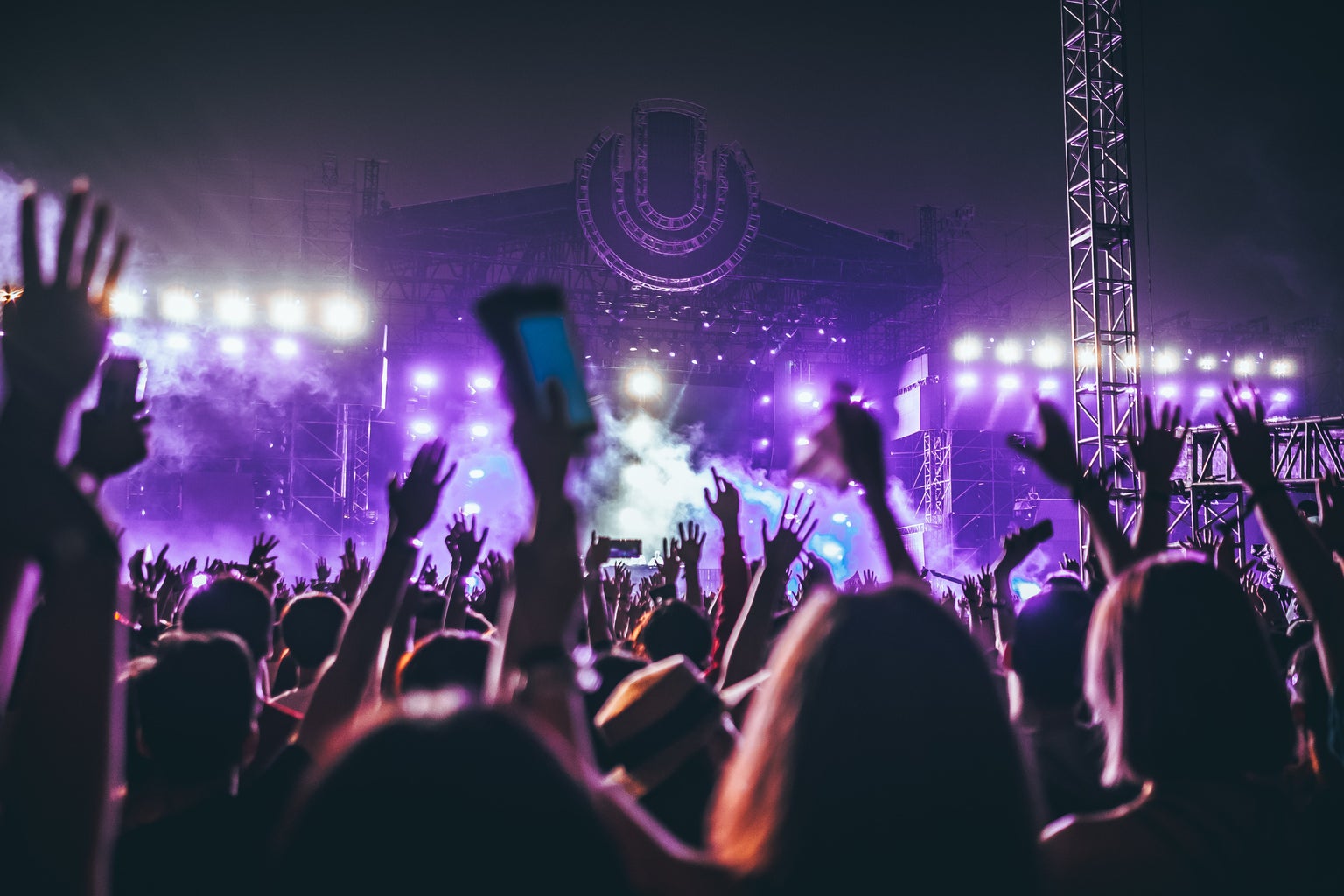A little over a week ago I got a horrible case of deja vu. While waiting to purchase tickets for Gracie Abrams’ “Good Riddance Tour,” I was brought back to a fateful November day from hell. Anyone who is well-versed in social media or a fan of music in our generation has most likely heard of the Taylor Swift/Ticketmaster debacle. If you haven’t, I’ll get you up to speed: popular singer Taylor Swift recently released her 10th studio album, “Midnights,” and it topped the charts. When she announced the accompanying “Taylor Swift: The Eras Tour” where she would be playing songs from each album she’s released over the years (hence “eras” in the title), fans went absolutely insane. I, like most Swifties, knew getting tickets would be difficult. I had purchased Olivia Rodrigo tickets a year prior and dealt with a crashing ticketing queue (essentially a waiting room with a line) and angry fans. Despite Rodrigo’s popularity, her reach was small compared to that of Swift–and I knew it was going to be miserable.
Abrams’ tour ended up sold out quickly, with many fans of the artist left ticketless and angry. Following the epic failure that was “The Eras Tour” presale, and the subsequent lawsuits and political involvement that sprung from the mistakes made by Ticketmaster, many fans were relieved to see that Gracie Abrams’ team chose to go a different route, using multiple different ticketing platforms for the presale, depending on the venue. For the show I am attending, I was lucky enough to avoid Ticketmaster and its affiliate Live Nation, which was being used for Abrams’ shows. Despite this, many fans still faced extreme difficulty when trying to purchase tickets through all of the platforms used. Fans who have been supporting Abrams since the beginning of her music career were left without tickets, while ticket resellers pretty much instantly began uncharging for General Admission tickets. Something that Abrams does differently, however, is provide fans with VIP options through her website, rather than through the venue/ticketing platforms. This allows for VIP experience packages to require an extra step before purchasing, essentially giving fans a chance to purchase before many resellers even realize that it is an option. My experience with the “Good Riddance Tour” was not entirely miserable, but getting my hands on Eras tickets was an entirely different story.
The night before tickets were set to release, I was stressed beyond belief. I had gotten a presale code for being a Verified Fan, which meant I had early access to tickets. Despite this sounding special, anyone with experience on Ticketmaster knows that it is fairly easy to become a “Verified Fan.” All it takes is registering to the list with a link usually shared by the artist and hoping you receive an email with an attached code to use during the presale. Before the presale even went live, many fans were upset as they had not received presale codes. There were also “boosts” going out to fans for purchasing merchandise, having past tickets to “Loverfest” which was canceled due to Covid-19 and a Capital One card pre-sale happening as well. It is encouraged by fans to attempt to sign up for presale with multiple email addresses in the hopes that “if you don’t get a code with one, another will do.” My three siblings and I signed up, and three of us got codes.
The morning of November 15th, the day of the Verified Fan presale, I woke up around eight. Two of my sisters joined the queue separately–or at least attempted to. I know it sounds pathetic, but we grew up heavily involved in fandom culture, and our time was a sacrifice we were willing to make. It was Taylor Swift we were talking about, after all. There are often tips and tricks posted for fans on Twitter, as well as tips released by Ticketmaster themselves to help ensure tickets end up in the hands of as many fans as possible. The process of presale was put in place in the hopes of preventing ticket resellers from purchasing them. While it doesn’t stop it from happening completely, it normally works in the favor of fans. I was expecting the queue to take even longer than it did for the SOUR Tour, and knew going into it that my chances were slim. Originally, I was hoping for floor tickets, although it depended on the price–there were rumors that it would be about $400.00 for them.
Things got messy pretty quickly when I was stuck in the same place on the queue for nearly two hours. That’s right. I sat at number 1626 for two hours of my life. I couldn’t leave the screen or refresh, as doing either of these things would result in losing my place in line. I was frustrated, stressed and beyond upset. I have been a fan of Taylor for as long as I can remember. This tour meant everything to me. We found out through Twitter that Ticketmaster had paused the queue due to a “historically unprecedented demand with millions showing up to buy tickets for the TaylorSwiftTix Presale.” As Twitter turned into a frenzy of angry fans and upset people who’s shows had already sold out, I was losing hope. Almost an hour later, I was finally given the option to purchase tickets. The floor seats were almost $900.00 by this point and I was not willing to pay that. In the spirit of transparency, I will admit that I spent a lot more than I would have liked. I feel that it is also important to mention that I saved for these tickets for a long time before making this purchase, and it is something I knew I would regret not doing. When I got on Twitter, I saw that a lot of my followers were upset and didn’t manage to get tickets. I felt horrible for them. When it became more clear just how bad the situation was, I felt even worse.
On the morning of November 15th, 2022, a whopping 14 million people attempted to join the queue for “Taylor Swift: The Eras Tour” tickets. 3.5 million of those people attempted to register for presale, while only 1.5 million managed to actually obtain an access code. This meant that over 12.5 million people on the Ticketmaster website at the time of the crash had no chance of purchasing tickets to begin with, as anyone without a code could not get into the queue to even attempt to purchase tickets. The website was not built for this sort of demand and was not strong enough for this amount of internet traffic. But the issue many fans have with the entire situation is how this happened. Some blame Taylor, many blame ticket resellers and most blame Ticketmaster. But in all honesty, I think the real issue is concert culture itself.
Something I often think about is the stories my parents tell me about their teenage years into adulthood. They grew up in the 1980’s, and were alive during the golden age of rock and roll. It makes sense that as young people, they’d attend concerts. But this was a time before the rise of the internet, thus the rise of social media. When you wanted to attend a concert, you had to buy the tickets through a vendor or at the door of the show. People would stand outside for hours waiting, only to be told that the venue had sold out. This was the only way to do it, though. And for many years it worked. Back in the 80’s and 90’s, “groupies” were a huge part of concert culture. This was basically fans who followed artists and bands around the country to attend concerts and shows. While many fans still do this, it has definitely fallen out of common practice.
When I was growing up, I was hugely active in fandom culture. I was a giant fan of Selena Gomez and Ariana Grande, and managed to secure tickets to the Revival Tour as well as the Sweetener Tour. To be clear, I am using “managed” incredibly loosely. It was actually fairly easy. Full transparency, my parents waited until the last minute on both occasions, and yet our seats were still good and the tickets were not completely sold out. But maybe the difference here is entirely up to perspective. While I believed my seats were good at the time, looking back as someone who now takes concerts very seriously, I can’t say with 100% certainty that I would be satisfied with the same tickets today. But I know that I am not alone in this.
Concert ticketing queues are a fairly new addition to the game. I’m not completely sure that the demand for tickets has increased so much as the competition has increased. It is harder than ever to secure tickets of any sort. But it doesn’t have to be. I understand that floor tickets and VIP packages are more coveted after, and I understand the fact that people prefer great tickets over good ones. If I learned anything from the Eras debacle, it’s that this problem has layers. Celebrities are a huge influence over the lives of practically everyone, but they are especially relevant to people in our age group. We grew up watching television shows and listening to artists and reading teen magazines. We were around for the rise of Instagram, which meant we were lucky(?) enough to be there for the rise of fan accounts. As someone who has belonged to several “fandoms” over the years, my understanding of this topic runs deep. Meeting celebrities and having interactions with artists is something that many fans strive for, often holding this experience to the same level of importance as the event itself. I don’t think that it is fair to ask fans to compromise this experience, but I also think that fandom culture has gone a bit too far. At this point, we can’t fix much when it comes to this. But we can, however, ask organizations such as Ticketmaster for better.
It should not be so hard to purchase tickets, especially for fans. While I understand the demand levels are high, there are options for bettering the websites that are used to sell tickets. Whether that be making the eligibility for presale more difficult (checking streaming records, whether or not purchasers follow/interact with the artist on social media, etc.), or enforcing ticket resellers to pay a fee in order to list the ticket on a third-party website or any other option, benefiting the real fans instead of third party purchasers who are simply looking to make money is always going to be the better option.
I am incredibly lucky to have managed to get tickets and am grateful that I am in a position to be able to do so. I also am aware that concert culture is damaging to our society in more ways than one, and am ready to acknowledge that it is a real problem. Celebrities should not have this much influence on day-to-day life. As a college student, I face a lot of expenses. Tuition fees, books, food and spending money quickly add up, and financial stress is a huge factor in almost all of our lives. Although I absolutely think it is important to save up for expenses such as these, and I 100% understand being fiscal when it comes to money, I *love* concerts. I value the experience and the atmosphere, and much like my parents, I am excited to look back at these years of my life and the memories I made fondly. So for me personally, putting some money aside every couple of months in order to see an artist who inspires me greatly does not seem like the worst idea. I’m not going to stop attending concerts anytime soon, and I am inclined to believe that most people would say the same for themselves. The best way to move forward is to make ticket purchasing easier, so that everyone who wants to see a show is able to do so. Concert culture is not going to change anytime soon, but we can hope that Ticketmaster makes it up to fans by creating real change.




